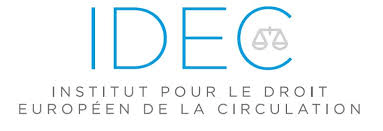Jeśli kiedykolwiek miałeś kłopoty z uzyskaniem należnego odszkodowania od firmy ubezpieczeniowej po wypadku samochodowym, ta decyzja pomoże Ci wyjaśnić Twoje prawa.

24 września 2025 r. Sąd Najwyższy wydał istotną uchwałę (III CZP 32/24), która zmienia istotne aspekty sposobu obliczania odszkodowań z obowiązkowego ubezpieczenia OC posiadaczy pojazdów mechanicznych (OC komunikacyjne). Orzeczenie to porusza od dawna dyskutowane kwestie dotyczące ustalania kosztów naprawy, stosowania rabatów oferowanych przez partnerów ubezpieczycieli oraz opodatkowania podatkiem VAT w roszczeniach o odszkodowanie.
Hipotetyczne koszty naprawy a rzeczywiste naprawy
Pierwszy punkt rezolucji potwierdza, że odszkodowanie może zostać ustalone na podstawie hipotetycznych kosztów naprawy, nawet jeśli poszkodowany podjął się naprawy pojazdu. Jest to istotne, ponieważ wzmacnia zasadę swobody wyboru osoby dochodzącej odszkodowania. Poszkodowany zachowuje prawo do odszkodowania odzwierciedlającego niezbędne i uzasadnione koszty naprawy, niezależnie od ostatecznie wybranej metody naprawy.
Dla praktyków oznacza to, że ubezpieczyciele nie mogą automatycznie obniżać odszkodowania tylko dlatego, że rzeczywiste koszty naprawy różnią się od szacunków eksperta. Sąd potwierdził, że naczelną zasadą jest prawo poszkodowanego do pełnego odszkodowania.
Rabaty dla partnerów ubezpieczeniowych i uzasadnione interesy
Drugim kluczowym problemem jest częsta praktyka ubezpieczycieli sugerujących zniżki na części zamienne i materiały lakiernicze dostępne za pośrednictwem warsztatów partnerskich lub dostawców. Sąd Najwyższy wyjaśnił, że takie zniżki mogą być uwzględniane przy obliczaniu odszkodowania tylko wtedy, gdy uzasadniony interes poszkodowanego nie wyklucza ich wykorzystania.
W praktyce oznacza to, że ubezpieczyciel może wskazać oszczędności możliwe do osiągnięcia dzięki sieciom partnerskim, ale nie może ich narzucić zgłaszającym roszczenia, jeśli na przykład proponowani dostawcy lub warsztaty są niedogodnie zlokalizowane, nie spełniają odpowiednich standardów jakości lub są z innych powodów nieodpowiednie. Priorytetem pozostaje pozycja i uzasadnione potrzeby zgłaszającego roszczenia.
VAT w odszkodowaniu za naprawy pojazdu
Trzeci element uchwały dotyczy podatku od wartości dodanej (VAT) od kosztów naprawy. Według Sądu Najwyższego, odszkodowanie z tytułu ubezpieczenia OC komunikacyjnego nie zawiera podatku VAT, jeśli poszkodowany dokonał już naprawy pojazdu, a zapłacona przez niego cena nie zawierała podatku VAT (np. dlatego, że naprawa została wykonana przez podmiot zwolniony z VAT). Innymi słowy, jeśli poszkodowany przedstawi fakturę za naprawę zawierającą podatek VAT, ubezpieczyciel musi zwrócić całą kwotę widniejącą na fakturze, łącznie z podatkiem VAT.
Praktyczne implikacje dla poszkodowanych
Niniejsza rezolucja stanowi krok naprzód w kierunku wzmocnienia ochrony poszkodowanych, zapewniając, że nie będą oni zmuszani do zawierania niekorzystnych ugód ani do akceptowania kalkulacji kosztów ustalanych przez ubezpieczyciela. W szczególności:
- Osoby dochodzące roszczeń mogą opierać się na hipotetycznych szacunkach kosztów nawet po wykonaniu napraw.
- Rabaty oferowane przez sieci ubezpieczycieli nie mogą automatycznie zmniejszyć odszkodowania — mogą mieć zastosowanie tylko wtedy, gdy jest to zgodne z interesami osoby ubiegającej się o odszkodowanie.
- Poszkodowany może otrzymać pełne odszkodowanie, łącznie z podatkiem VAT, jeśli faktycznie zapłacił ten podatek jako część kosztów naprawy.
Z praktycznego punktu widzenia, decyzja ta powinna ograniczyć spory między ubezpieczycielami a osobami dochodzącymi odszkodowania, ułatwiając poszkodowanym uzyskanie godziwego odszkodowania. Dla prawników doradzających klientom w sprawach wypadków drogowych, orzeczenie to stanowi cenną argumentację w negocjacjach i sporach sądowych z ubezpieczycielami.




















 Dzień dobry!
Dzień dobry!